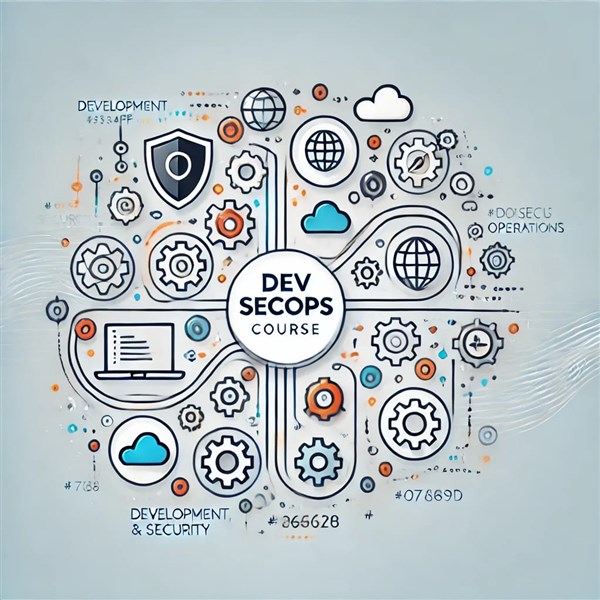Unable to find what you're searching for?
We're here to help you find it
In today's rapidly evolving digital landscape, cybersecurity is more critical than ever before. With the rise of cloud computing, automation, and continuous integration/continuous delivery (CI/CD) pipelines, traditional security methods often fall short in meeting modern development needs. This is where DevSecOps—the integration of security into the DevOps pipeline—becomes essential.
A DevSecOps course equips professionals with the necessary skills to build secure applications from the ground up while maintaining agile and efficient workflows. By blending development, operations, and security practices, DevSecOps focuses on embedding security at every stage of the software development lifecycle (SDLC). Below are the key skills you’ll gain from a DevSecOps course that will set you apart in the ever-growing cybersecurity and IT landscape.
Security automation is one of the cornerstones of the DevSecOps philosophy. In a traditional IT environment, security tasks such as vulnerability scanning, patch management, and threat detection are performed manually, which can be time-consuming and prone to human error. With security automation, these tasks are streamlined, ensuring that vulnerabilities are addressed quickly, efficiently, and consistently.
A DevSecOps course will teach you how to implement security automation tools and practices that can be integrated into the CI/CD pipeline. By automating security tests and vulnerability scanning during the development process, security becomes an inherent part of development rather than an afterthought.
Some of the tools and technologies you’ll learn to use for security automation in a DevSecOps course include:
By automating security processes, you will not only reduce the manual workload but also improve the speed of application delivery while maintaining a high level of security.
Continuous monitoring is a fundamental skill taught in DevSecOps courses. In a world where cyber threats evolve constantly, it is essential to monitor systems in real-time for any signs of security breaches or vulnerabilities. Traditional security methods often rely on periodic checks, leaving systems open to attack in the interim.
In DevSecOps, security is continuously monitored, which means vulnerabilities can be detected and mitigated as soon as they are introduced. This proactive approach ensures that the security posture of applications and systems is always up-to-date.
In a DevSecOps course, you'll learn how to implement continuous monitoring by integrating security tools with your CI/CD pipeline. These tools will track security metrics, monitor system behaviors, and generate alerts when unusual activities are detected. You'll also get hands-on experience with monitoring services such as:
By mastering continuous monitoring, you will be able to prevent security issues before they escalate into critical problems, creating a safer development environment.
At the core of DevSecOps lies secure software development. A DevSecOps course places significant emphasis on teaching secure coding practices, which are essential for developing applications that are resilient to threats and attacks.
Security vulnerabilities in code can often lead to serious breaches, which is why securing the code from the beginning is a crucial part of the DevSecOps approach. You will be trained on how to write secure code by learning best practices for:
By acquiring secure coding practices, you'll be able to build applications that are resistant to common exploits like SQL injection, cross-site scripting (XSS), and cross-site request forgery (CSRF).
A critical aspect of DevSecOps is collaboration between development, operations, and security teams. As DevSecOps integrates security directly into the development and operations process, professionals in these fields must work closely together to ensure smooth collaboration and effective communication.
Through a DevSecOps course, you’ll learn how to foster a culture of collaboration across all teams. This involves:
Collaboration and communication are key to achieving a successful DevSecOps strategy. By developing these skills, you’ll be able to bridge gaps between different teams and ensure that security is considered at every phase of the project.
Risk management is another critical skill you'll develop in a DevSecOps course. Security is not just about eliminating vulnerabilities but also about understanding and mitigating the risks that could arise from potential threats.
In a DevSecOps course, you'll learn how to:
By mastering risk assessment, you’ll be able to make informed decisions about how to manage security in a way that balances both business objectives and security needs.
Finally, a DevSecOps course prepares you to handle security incidents effectively. Despite best efforts, breaches and security incidents can still occur. Therefore, it's essential to have an incident response plan in place.
In a DevSecOps course, you’ll learn how to:
An effective incident response strategy ensures that you are always prepared for security events, minimizing damage and downtime.
Conclusion
A DevSecOps course provides essential skills for those looking to advance their careers in cybersecurity, IT, and software development. By gaining expertise in areas such as security automation, continuous monitoring, secure coding practices, and risk management, you’ll be well-equipped to contribute to the development of secure applications while fostering collaboration across departments.
In today's landscape, where security threats are evolving rapidly, mastering these skills will not only enhance your ability to protect systems but also improve your marketability as a professional capable of integrating security into the fast-paced world of DevOps.
Koenig Solutions is a leading IT training company providing certifications in top technology courses. With experienced trainers, flexible schedules, and an interactive learning environment, Koenig Solutions offers a comprehensive DevSecOps course tailored to meet your learning needs. Enhance your skills and take your career to new heights with Koenig Solutions.

Aarav Goel has top education industry knowledge with 4 years of experience. Being a passionate blogger also does blogging on the technology niche.










